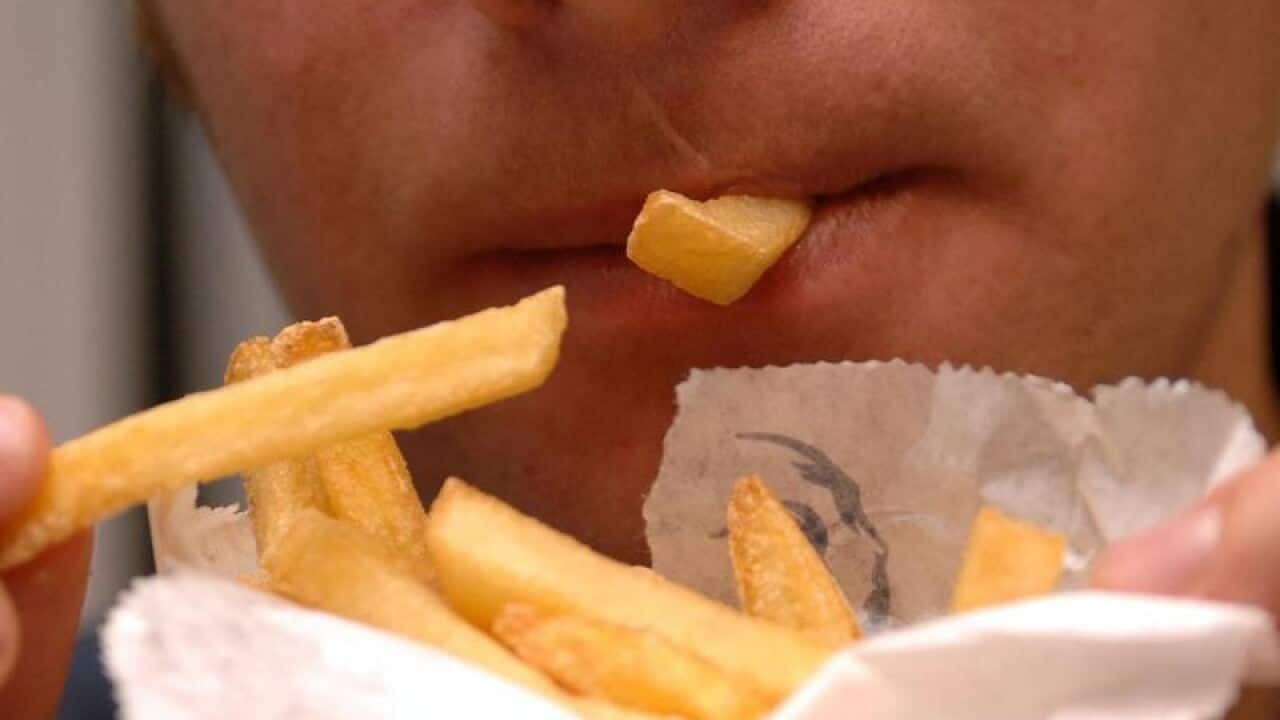Sperm quality is significantly compromised by obesity and men need to reduce their weight and eat more fruits and vegetables to ensure healthy reproduction, say researchers.
A large study of more than 1200 Indian men, published in medical journal Andologia, found obesity was associated with lower volume of semen, sperm count, concentration and motility, as well as greater sperm defects.
The findings highlight a greater need to address weight loss among men before couples start assisted reproduction treatment, the authors say.
Professor Kelton Tremellen, Gynaecologist and Professor of Reproductive Medicine at Flinders University agrees.
"We can't just put women through IVF to treat male infertility, often it's required, but we must improve the quality of the sperm before we get to potential treatments like IVF," Prof Tremellen told AAP.
The other concern, he says, is that obesity can cause DNA damage in the sperm.
"And that will then be passed on to the baby if we do IVF treatment," he said.
Advances in computer-aided sperm analysis has enabled more precise evaluation of sperm quality.
Researchers at the Centre for Assisted Reproduction, Krishna IVF Clinic analysed the sperm of 1285 men of an average age 34.5 who had visited the clinic in 2016.
Sperm count, concentration, motility and concentration were assessed based on the guidelines from the 5th edition for Sperm Assessment of the World Health Organisation.
Overall, 201 men were classed as obese
The men with a body mass index (BMI) greater than 30 was associated with lower volume of sperm count, lower concentration and motility.
"The health and reproductive performance of spermatozoa in obese men are more likely to be compromised both qualitatively and quantitatively," said lead author Dr Gottumukkala Ramaraju.
It's imperative for couples before they conceive that the man is in good health, says Prof Tremellen.
Men are advised to quit smoking, drink less than two alcoholic drinks a day and also eat plenty of fruit and vegetables.
Prof Tremellen says the antioxidants found in fruits and vegetables can help neutralise the damaging chemicals produced in obesity.
"Obesity causes inflammation and the hallmark of inflammation is the release of chemicals called free radicals and they will damage cells and they will damage the DNA of cells, so that's the problem. Sperm is merely a transport vehicle for DNA and if that DNA is being damage by these free radicals then the embryo will be of poorer of quality, more likely to miscarry or not even get conception."
"Even more concerning is that it will effect the health of the child," warned Prof Tremellen.

